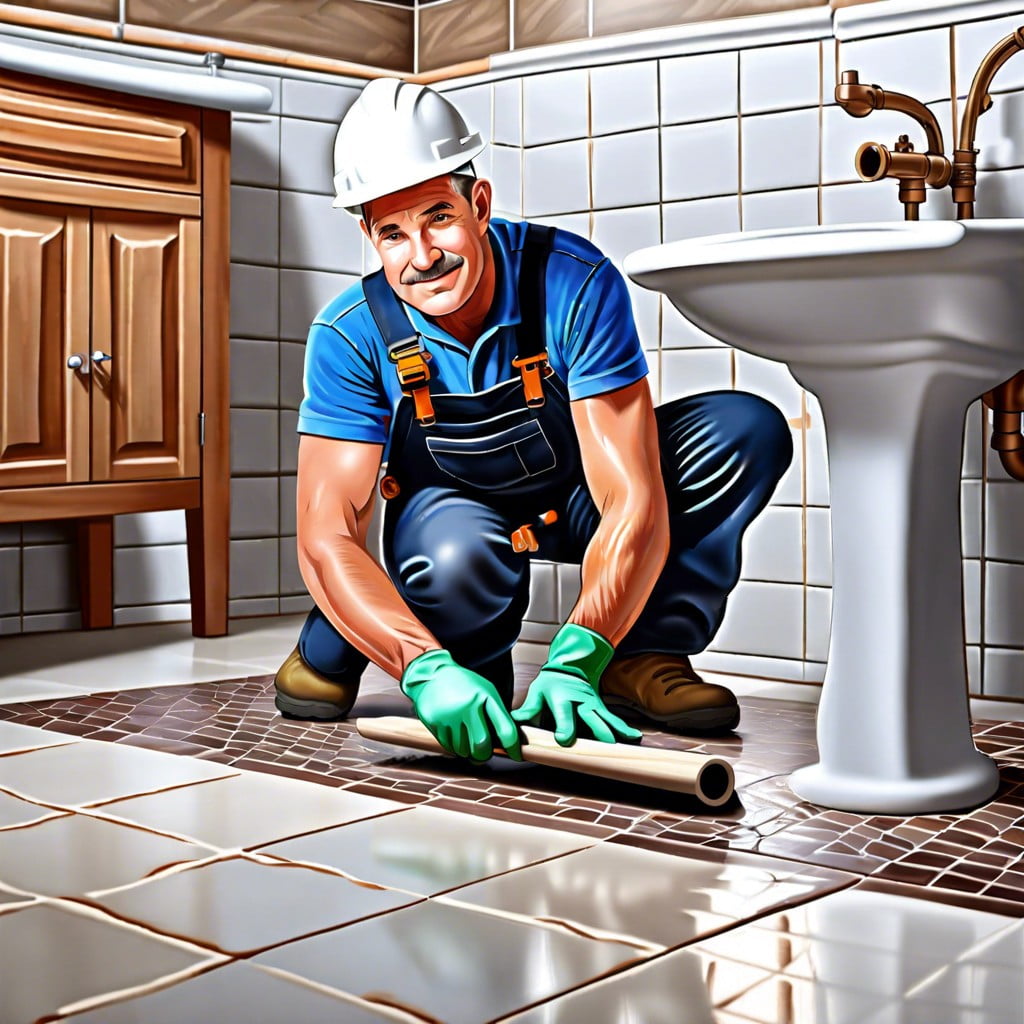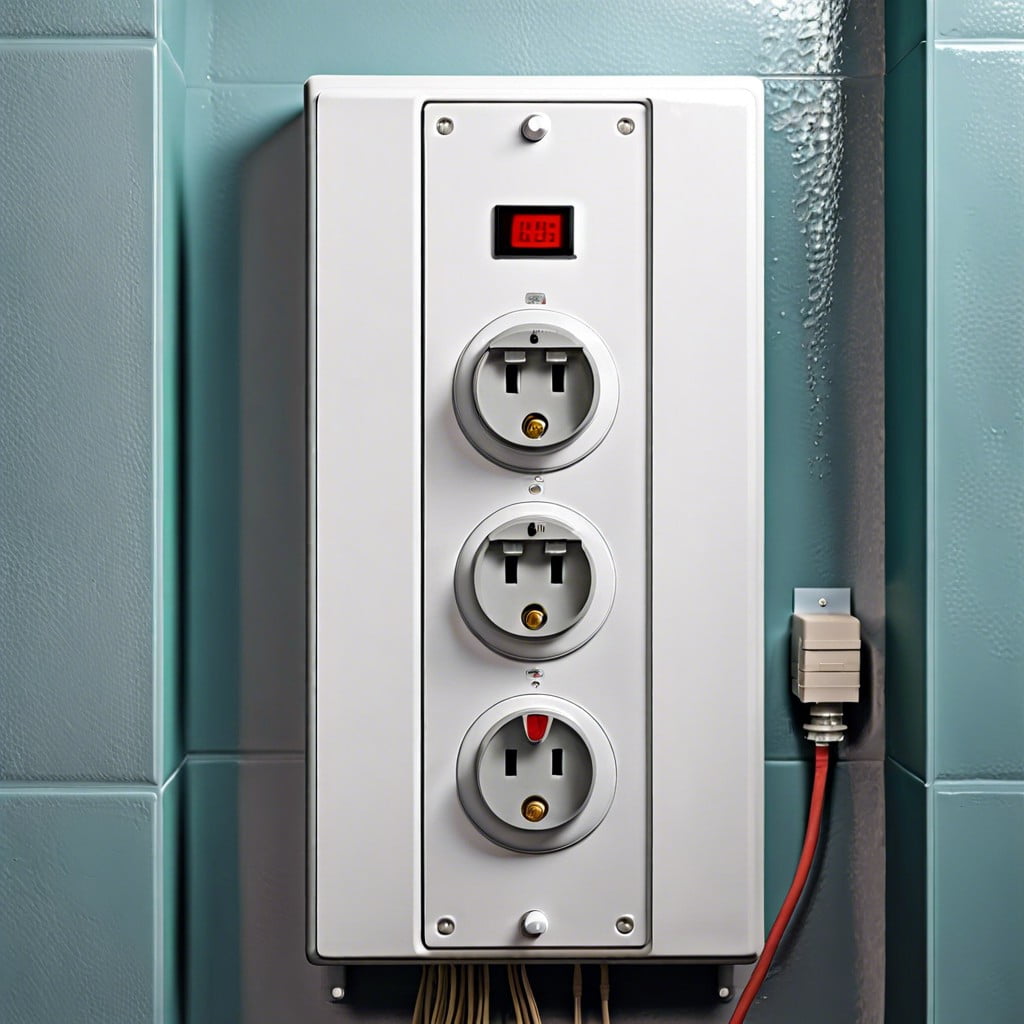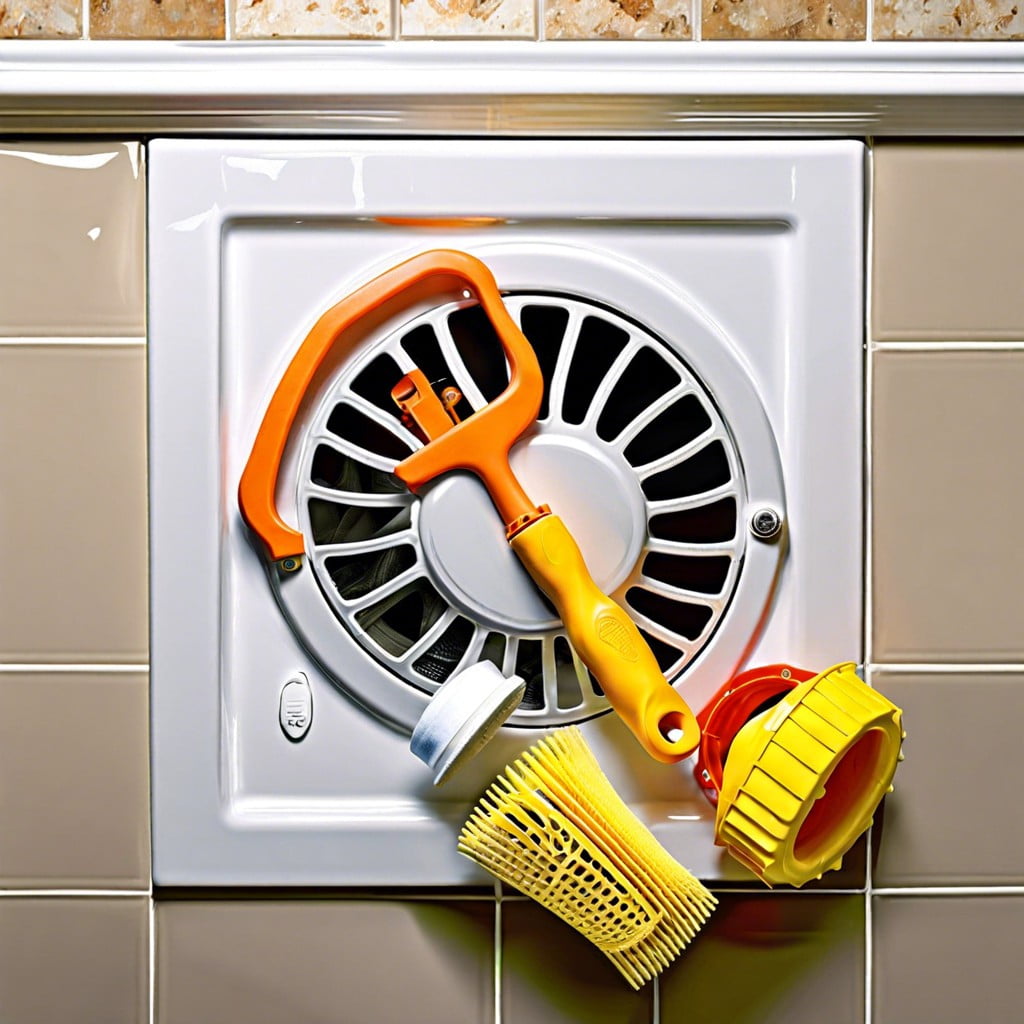Last updated on
Unleashing the vast universe of specialty contractors, this comprehensive guide aims to break down various examples and their specific roles in the construction industry.
Key takeaways:
- Electricians: Experts in wiring and power issues.
- Plumbers: Ensure smooth water systems and prevent leaks.
- HVAC Specialists: Keep indoor environments comfortable year-round.
- Roofing Contractors: Protect homes from the elements.
- Concrete Contractors: Bedrock of urban landscapes and foundations.
Examples of Specialty Contractors
Electricians light up our lives, quite literally. They are the go-to experts when you need to wire a new building or fix an existing power issue.
Meanwhile, plumbers are like the lifeguards of our home’s water systems, ensuring everything flows smoothly without unwanted leaks or clogs.
Stepping into a perfectly warm or cool room regardless of the weather outside? Thank HVAC specialists for that. These technicians play with temperature and air quality to keep indoor environments comfortable year-round.
Roofing contractors are the unsung heroes protecting our homes from the elements. They ensure that our shelter is sturdy and leak-free, a silent guardian against rain and snow.
If you ever marvel at the structural integrity of sidewalks or a building’s foundation, thank concrete contractors. Their expertise in mixing and laying concrete is the bedrock of our urban landscapes.
Painters add the finishing touches, bringing color and life to walls and ceilings with their brushes and rollers, turning blank canvases into vibrant habitats.
On the cutting-edge of safety, fire protection systems contractors install and maintain critical systems that can save lives and properties in the event of a fire.
As we shift towards eco-friendliness, solar power contractors are key players in transitioning us to sustainable energy, outfitting buildings with panels that harness the power of the sun.
Finally, smart home automation contractors are the wizards of convenience and modern living, turning homes into responsive, intelligent spaces that react to our needs and commands.
Each specialist holds a unique role, playing their part in constructing and maintaining the complex puzzle that is our built environment.
Electrical Contractors
When you flip a switch, you expect light. That simple action is backed by complex systems and expertise provided by electrical contractors. This niche in the contracting world buzzes with professionals adept at installing, repairing, and maintaining electrical systems in residential, commercial, and industrial properties. They ensure that wiring, fixtures, and the myriad components of electrical systems meet specific standards and regulations for safety and functionality.
Deeply versed in local and national electrical codes, these contractors carry the responsibility for enabling the flow of power through every socket and ensuring that this invisible force doesn’t become a hazard. Whether it’s laying out electrical frameworks in new constructions or troubleshooting issues in century-old buildings, their work requires precision and continual education on evolving electrical technology.
For homeowners looking to remodel, electrical contractors are the go-to pros for upgrading electric panels to accommodate new appliances or installing energy-efficient lighting systems. They’re also pivotal in modernizing homes, such as integrating home automation systems that require sophisticated electrical configurations.
Their service is essential, and their expertise unmatched. Without their focused skill set, the infrastructures of our daily lives would be less efficient and, quite frankly, less safe.
Plumbing Contractors
Plumbing contractors are your go-to experts for all things related to water and piping in your home or business. They handle the installation, maintenance, and repair of pipes, fixtures, and fittings that make up the complex plumbing systems.
Expertise in the latest plumbing technologies ensures they can tackle everything from a leaky faucet to the installation of sophisticated, eco-friendly water systems.
A licensed plumber is a safety requirement, not a luxury, given plumbing’s direct link to hygiene and water safety.
Plumbing professionals are essential during construction; they liaise with building contractors to ensure smooth integration of plumbing systems.
They also play a critical role in maintenance and emergency repairs, often available 24/7 for urgent issues like burst pipes or sewage backups.
With the rise of water conservation awareness, their knowledge has become crucial in recommending and installing water-saving devices that don’t compromise functionality.
Remember, plumbing is a critical, skilled trade that keeps our homes and communities running smoothly, often working behind the scenes to ensure comfort and sanitation.
HVAC Contractors
HVAC stands for Heating, Ventilation, and Air Conditioning, and these specialists operate in a complex niche requiring a unique skill set. They ensure indoor environments remain comfortable, regardless of the weather outside. A key aspect that distinguishes them is their knowledge of systems that control temperature and air quality in buildings, from residential homes to towering commercial structures.
To navigate this field successfully, one must be proficient in mechanical and electrical components since these systems often intertwine. Besides installation, HVAC professionals are tasked with maintenance to keep systems running efficiently and repairs to address inevitable wear and tear over time.
They are also frontliners in the sustainable building movement, guiding clients toward energy-efficient solutions. Given the movement toward greener technologies, mastery over the latest advancements in eco-friendly systems is increasingly sought after.
Understanding the intricacies of regulations and safety standards is fundamental since improper handling can lead to significant health risks. It’s not solely about comfort, but also about contributing to safer living and working environments. HVAC contractors regularly collaborate with other trades on a project to ensure seamless integration of their systems with other building elements.
Roofing Contractors
When it comes to protecting your home from the elements, they’re your frontline defense. Using an array of materials, from traditional asphalt shingles to contemporary metal panels, these specialists ensure your roof can withstand the tests of time and weather.
The skills involved aren’t just about application; they also encompass repair and maintenance, crucial for extending a roof’s lifespan. Besides the material expertise, these contractors must navigate the complexities of building codes and regulations, which vary widely depending on location.
Safety is paramount in this line of work, not only for the worker perched high above the ground but also for the homeowner, who relies on the integrity of the installation or repair.
Ensuring a solid, leak-free roof installation or conducting timely repairs can greatly impact energy efficiency, with proper insulation and ventilation playing a large role in the regulation of indoor temperatures.
Opting for a qualified roofing contractor isn’t just about aesthetics; it’s a decision that affects the long-term durability and efficiency of your home.
Concrete Contractors
Concrete contractors are the maestros of the building foundations, driveways, and sidewalks. They also specialize in creating decorative features. They mix scientific precision with artistic flair to create durable and aesthetically appealing structures.
These experts delve into the chemistry of concrete, ensuring the mix withstands the test of time and the elements. Collaborating with them guarantees a seamless transition from the blueprint to the tangible, with the reassurance of their deep understanding of building codes and regulations.
Specialized equipment is their forte, enabling them to tackle projects of varying complexity with confidence. Whether creating a new patio or pouring a massive foundation, their role is pivotal in translating architectural dreams into solid reality.
Painting Contractors
Specialists in transforming spaces with swatches and strokes, these professionals bring a new life to interiors and exteriors alike. They don’t just splash on a new coat; proper preparation is key, safeguarding surfaces from the elements and ensuring a durable finish.
They are adepts at navigating the nuances of different paint types, from matte to high gloss, each suited to particular environments and wear. Their expertise extends to intricate tasks such as faux finishes, stenciling, or murals requiring steady hands and creative vision.
Their role is critical in both cosmetic refurbishments and significant renovations, often coordinating with other trades to sequence project stages efficiently. Certification in lead-safe practices adds to their qualifications, especially in older structures where lead-based paint might reside.
In all, they bring more than color to a space; they bring protection, personality, and professionalism.
Fire Protection Systems Contractors
Fire protection systems contractors specialize in one of the most critical aspects of building safety. They are the behind-the-scenes heroes ensuring that, in the event of a fire, buildings are equipped to safeguard lives and minimize damage. This specialty focuses on the installation, maintenance, and repair of fire sprinkler systems, fire extinguishers, and alarms.
Their role often extends to consulting with architects and builders in the design phase, emphasizing the importance of integrating fire protection measures from the ground up. These experts must stay abreast of local and national fire codes and technological advancements in fire suppression and alarm systems. Certifications are typically required, with rigorous training involved to understand the complexities of fire dynamics and the appropriate responses.
Moreover, the maintenance aspect of their work cannot be understated. Regular inspections and testing of fire safety equipment are not just mandatory; they are essential practices that ensure the operational effectiveness of these life-saving systems. Collaboration with public safety officials for fire drills and educational programs often falls under their purview, showcasing their role in proactive community safety measures.
Navigating this niche requires a blend of mechanical proficiency, an unflinching commitment to safety standards, and a proactive approach to client education. It’s not just about installing equipment; it’s about fostering a safer environment and potentially saving lives.
Solar Power Contractors
Harnessing sunlight to energize homes requires skill and precision, and that’s where solar power contractors shine. These specialists deal with the installation and maintenance of solar panels and systems. They often collaborate with electricians to ensure systems are integrated safely into existing electrical grids.
An accomplished solar power contractor not only manages the panel placement, optimizing energy absorption, but also navigates the permits, inspections, and utility company regulations. It’s essential they stay abreast of technological advancements to propose the most efficient solar solutions. Equally important is their role in educating homeowners about potential energy savings and tax incentives, making the transition to solar as seamless as possible.
Smart Home Automation Contractors
In an era where convenience and efficiency are paramount, Smart Home Automation stands out as a beacon of modern living. These contractors are the wizards behind the curtain, transforming ordinary homes into intelligent ecosystems. With a focus on creating seamless interactions between a homeowner and their living space, these experts install systems that control lighting, temperature, security, and entertainment through centralized, often voice-activated commands.
To understand their role, consider the following points:
- Expertise in Integration: They possess specialized knowledge in integrating various smart devices to work together cohesively. Beyond mere installation, they ensure different brands and technologies communicate with each other flawlessly.
- Customization Skills: Tailoring systems to fit unique lifestyles is their forte. They design solutions that not only adapt to individual preferences but also anticipate user needs.
- Problem-Solving: They troubleshoot intricate technical issues that may arise from the complex interplay of different smart home technologies, safeguarding the harmony of your smart ecosystem.
- Stay Updated: With tech evolving rapidly, it’s their job to stay abreast of the latest developments, from cutting-edge AI to energy-saving systems.
- Security Focus: Beyond convenience, they prioritize homeowner security, implementing systems that not only protect but also provide peace of mind through advanced monitoring capabilities and alerts.
- Energy Efficiency: They can help homeowners reduce their carbon footprint and save on utility bills by integrating smart thermostats and energy management systems.
Smart Home Automation Contractors are instrumental in sculpting the futuristic vision of home living. They bring the luxury of control and the gift of time back into the hands of homeowners through technological sophistication.
FAQ
What do specialty service contractors do?
Specialty service contractors are skilled professionals who perform complex and specialized tasks in areas such as electrical, HVAC, plumbing, roofing, landscaping, painting, carpentry, among others.
What is a specialty trade contractor?
A specialty trade contractor is a professional whose focus lies in performing particular tasks involved in building construction such as pouring concrete, site preparation, plumbing, painting, and electrical work.
What does contracting specialty mean?
Contracting specialty refers to a specific area of focus within contracting in which a contractor has specialized skills and responsibilities, such as alterations, repairs, maintenance or additions.
What does specialties mean in construction?
In the context of construction, specialties refer to the distinct area of expertise that a contractor possesses requiring unique skills and training.
How does the role of a specialty contractor differ in commercial and residential construction?
A specialty contractor in commercial construction focuses on larger-scale projects requiring specialized skills, like electrical and plumbing systems in high-rise buildings, while in residential construction, they concentrate on specific tasks, such as installing HVAC systems or ceramic tile in homes.
What types of insurance do specialty contractors typically need?
Specialty contractors typically need general liability, workers’ compensation, and professional liability insurance.
How are specialty contractors impacted by changes in construction regulations and standards?
Specialty contractors are significantly impacted by changes in construction regulations and standards as they must adapt their methods, materials, and processes to maintain compliance and avoid penalties.
Recap




